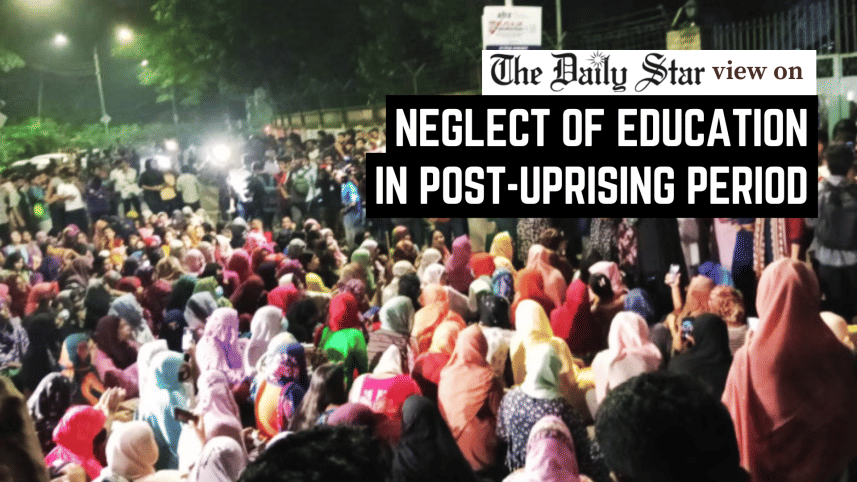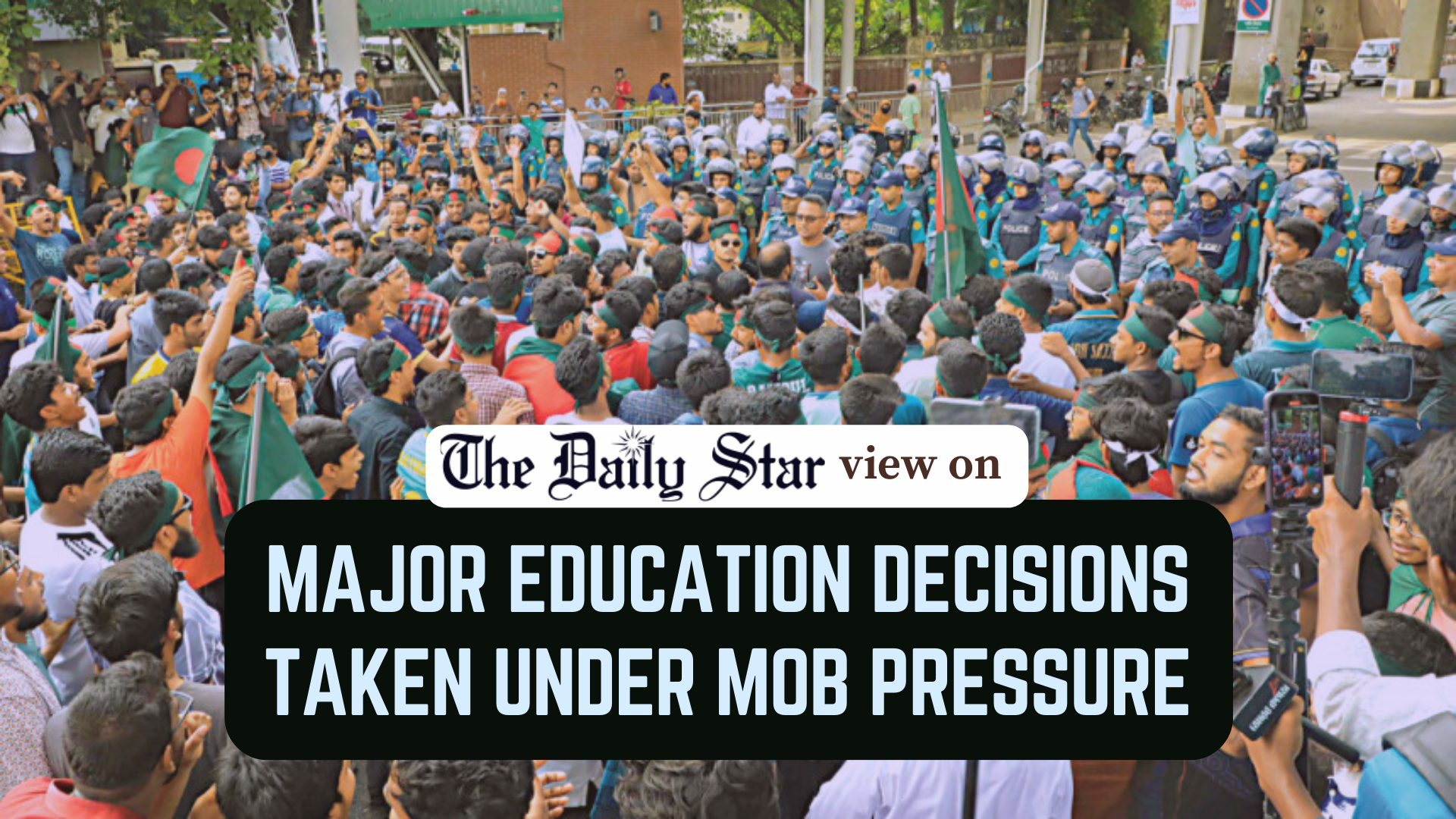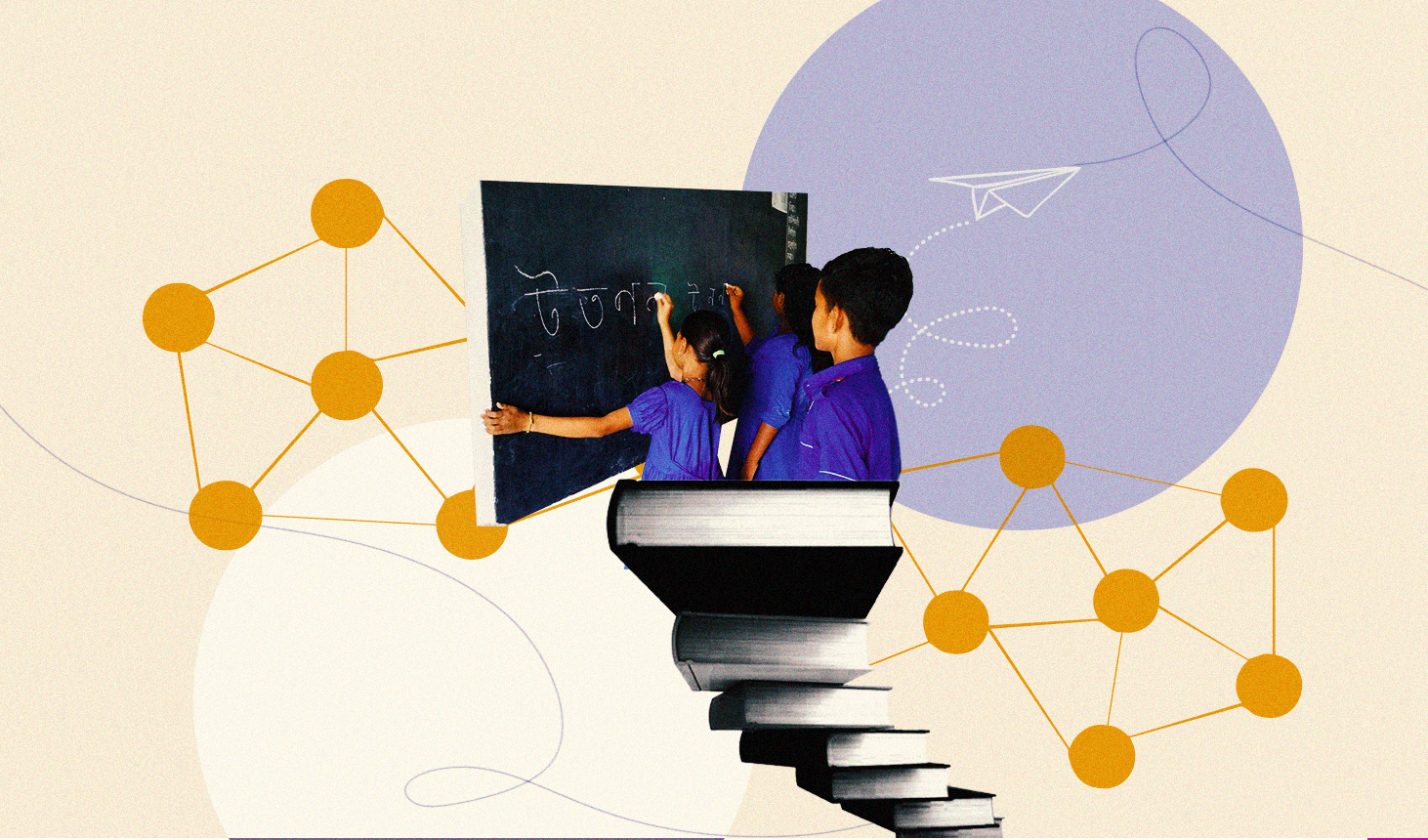Education sector still in disarray

It is deeply disappointing that, even after a year in office, the interim government has failed to initiate any meaningful reforms in the education sector. Expectations were high that it would take decisive steps to improve quality and address longstanding disparities. Instead, the government has not only fallen short of those expectations but has also struggled to manage the turmoil that erupted after the fall of the Awami League government.
Over the past year, students and teachers have repeatedly taken to the streets with demands ranging from salary increases and pay scale adjustments to exam postponements and automatic promotion. Educational institutions have witnessed forced resignations of teachers, politically motivated appointments, and public humiliation of educators. These disruptions extended beyond universities, with protests erupting in numerous schools and colleges, often calling for the removal of institutional heads—exposing the administration's inability to restore order. Despite forming 11 commissions for state reform after the July uprising, the government excluded education from its reform agenda. But why has such a critical sector been so glaringly neglected?
Understandably, it is not possible to reform the entire sector in one year, but the government has failed to do even what was feasible during this period. Educationists argue that, at the very least, it could have formed a reform commission to provide the next government with a solid foundation for essential reforms, and that the ongoing disruptions should have been handled far more effectively. For instance, after the mass resignation of public university vice-chancellors, many institutions struggled to resume regular academic and administrative activities. As a result, students faced prolonged disruptions. At KUET, for example, all academic activities were suspended for over five months until a new VC was appointed late last month.
Primary, secondary, and higher secondary education has also suffered significant setbacks. A sudden return to the 2012 curriculum for classes 6 to 12 created widespread confusion. Meanwhile, the National Curriculum and Textbook Board (NCTB), tasked with revising 50 textbooks, missed its December 2024 deadline, delaying nationwide distribution until April 2025. Consequently, many students began the academic year without complete textbooks, further widening learning gaps. Although a consultative committee was formed for primary education, progress in implementing its recommendations has been disappointing. Additionally, the cancellation of HSC and equivalent examinations—postponed during the July mass uprising—was regarded by many as a serious misstep.
This state of affairs cannot be allowed to continue. We strongly urge the government to prioritise the education sector and implement much-needed reforms. Experts have called for the formation of a specialised, non-partisan commission to stabilise the sector and draft a long-term policy roadmap to guide future administrations. This proposal deserves serious consideration. One year has already been lost to uncertainty. The government must not dilly-dally anymore.
 For all latest news, follow The Daily Star's Google News channel.
For all latest news, follow The Daily Star's Google News channel. 


Comments